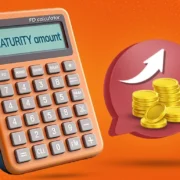Just like how people check the weather before stepping outside, businesses need to know what’s ahead to make smart decisions. Weather forecasts help us decide what to wear or when to plan a family barbecue. In the same way, budgeting and forecasting help businesses plan for the future, reduce risk, and make better choices.
Budgeting and forecasting are both important. Budgeting is like checking the weather hour by hour — it helps you manage your money day by day. Forecasting is more like looking at a long-term weather report — it gives you an idea of what might happen next week or next month, so you can plan ahead, even if surprises pop up.
These days, technology like artificial intelligence (AI) helps make planning faster and more accurate. Businesses no longer have to rely only on manual spreadsheets or guesswork. AI tools can give you updated insights and help you prepare for changes more easily.
Here are 7 simple and helpful tips to make your business budgeting and forecasting more accurate and useful.
1. Learn from the Past
Even with new tools, looking back at past performance is still very important. Before making new plans, review your financial records and see what worked or didn’t work before. This gives you a better understanding of:
- How your business handled challenges
- Where you made or lost money
- What trends keep repeating
AI tools can help you spot patterns and mistakes in past data so you can avoid them in the future. Think of it like using past weather reports to guess what the weather might be like next year.
2. Connect Planning Across All Teams
When different departments (like sales, finance, marketing, and operations) all plan together, the entire business benefits. This is called integrated business planning. It brings everyone onto the same page.
When finance leads this planning, it becomes the center of the business plan — guiding the goals, the budget, and the day-to-day spending. It also helps teams focus on shared targets and key numbers like sales growth, profit margins, and costs.
3. Use Rolling Forecasts
A rolling forecast is a budget plan that is updated regularly — like every month or every quarter — instead of just once a year. This helps your business stay flexible and ready for changes.
For example, if costs suddenly go up or sales slow down, rolling forecasts allow you to adjust quickly. This makes your planning more realistic and up to date. It’s like checking the weather each day instead of only once a month.
4. Prepare for “What If” Situations
Things don’t always go as planned. That’s why it’s smart to create scenario plans — plans for different situations. For example:
- What if prices go up?
- What if we sell more than expected?
- What if a key product doesn’t perform well?
Thanks to AI, building these “what-if” plans is faster and easier than ever. You can create different plans in minutes, not weeks. That means you’re ready to act quickly if one of those situations happens.
5. Keep an Eye on Important Numbers
There are a few key numbers — called key performance indicators (KPIs) — that help you track how well your business is doing. These include:
- Revenue (total money earned)
- Costs and expenses
- Profit margins
- Cash flow (how money moves in and out)
Using dashboards and reports, you can track these numbers in real-time. This makes it easier to see if your business is on track or if you need to make changes.
6. Save Time with Smart Tools
Planning used to take a long time. Teams would spend months creating a budget, and by the time it was finished, the market might have already changed.
Now, AI tools can help speed things up. They take care of many of the boring, manual tasks. This gives you more time to focus on important decisions, smart strategies, and ways to improve accuracy.
7. Involve the Whole Finance Team
Technology is helpful, but it doesn’t replace human knowledge. Everyone on your finance team brings ideas and experience that can help catch mistakes or find better ways to plan.
Encourage your team to review the numbers, ask questions, and share insights. Working together makes your budgeting and forecasting stronger and more accurate.
Final Thoughts: Plan Ahead Like a Weather Expert
Just like weather reports help you plan your week, good budgeting and forecasting help you plan your business future. The more accurate your data, the better prepared you’ll be to handle challenges or take advantage of new opportunities.
By reviewing the past, using modern tools, updating your plans often, and working together across departments, your business can make smarter decisions and grow with more confidence.
Being prepared helps you stay strong during tough times — and enjoy success when the sun is shining.






